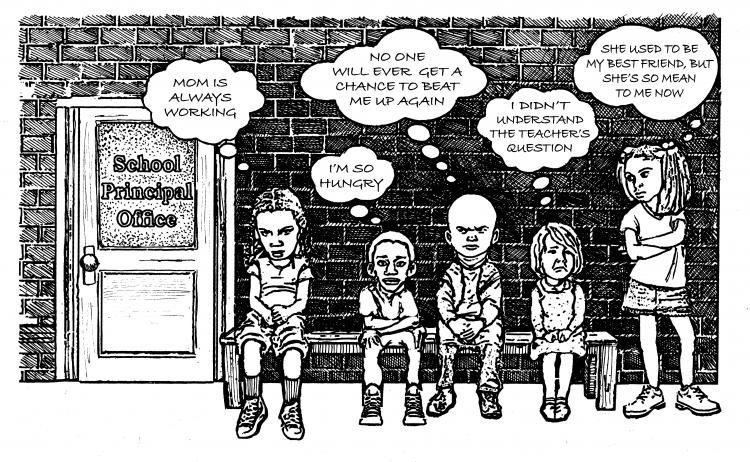Challenge: Discipline and Trauma Sensitivity
In direct correlation with the preponderance of violence and systematic oppression in urban areas, members of many urban communities experience high levels of trauma throughout their lives. From an extremely young age, children are exposed to violence in every form. Exposure to a host of traumatic experiences wear on the emotional and physical well-being of those in proximity, directly affecting the ability of community members to engage with each other and outside figures in healthy and productive ways. Young people in disadvantaged urban schools have often experienced an inordinate amount of violence in their lives, which manifests in symptoms including poor attendance, high dropout rates, low rates of continuing education, poor teacher-student relationships. In many school environments, students in these situations are met with a no-excuses discipline policy that choses to dismiss the underlying trauma that may be causing a child to act out.
Why New Orleans?
All urban centers in the United States have communities overwhelmed by violence and trauma, however, in addition to having the issues common among most urban communities, New Orleans and its citizens continue to work through the trauma caused by Hurricane Katrina in 2005. Although even young children at the time are now nearly finished with high school, schools in New Orleans Parish still serve students whose lives and families were torn apart by Katrina and the destruction it caused. This has created a hotbed of community organizations centered around ameliorating the effects of trauma on communities, and a focus on trauma-informed schooling. Most notably, Crocker College Prep, a charter school in New Orleans Parish, has received attention for its implementation of a trauma-informed discipline policy.
An NPR radio clip on Crocker College Prep’s new angle on school discipline:
